On one of our last days in Ko Ngai, Thailand, John and I were walking along a beach heading back to our cottage after snorkeling just offshore. Clara was trailing, picking up shells. I was thinking of what I had seen under the water and asked John something along the lines of, “What has our global/social/economic system produced that has been better than or as good as the environmental systems that were destroyed to make it?” His answer:”Nothing.”
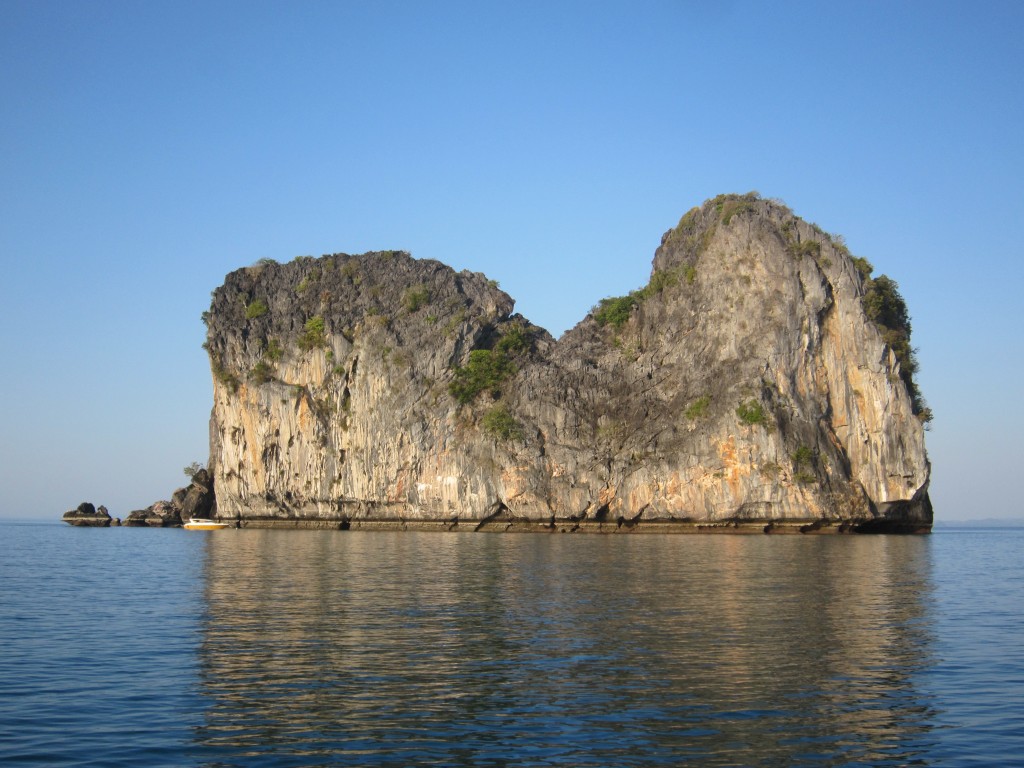 Let me explain: as a family we have traveled through South East Asia for nearly three months. We have seen many superficially amazing ecosystems, but each was threatened by change and/or “development.” The cumulative effect of this was what drove me to ask the above question.
Let me explain: as a family we have traveled through South East Asia for nearly three months. We have seen many superficially amazing ecosystems, but each was threatened by change and/or “development.” The cumulative effect of this was what drove me to ask the above question.
When I dove in Fiji 25 years ago, the waters were clear for a hundred feet. Darting fish spread rainbow streaks as they hid amidst soft corals, hard corals or behind giant clams. Little sign of previous human presence was in evidence. From what I understood then, Thailand’s waters were considered to be as great for diving as waters in the South Pacific. Since then, I have wanted to go take a look. In March, John and I snorkeled the reefs off Thailand’s Trang Islands, in the Andaman Sea. I felt I was looking at the last gasp of something spectacular. Fish were abundant, a few giant clams still showed their purple lips. Some coral was intact, but much more wasn’t. Either crushed by waves, boats, anchors, human activity, or all of the above, I passed over mounds upon mounds of crumbled, dead coral. The sight made me desperate to have Clara agree to don her mask and get her face in the water so at least she could see what was left. If she didn’t glimpse it now, I was afraid she’d never be able to. If she were able to come back in 25 years, what would remain?
I was pretty sure of the answer: nothing.
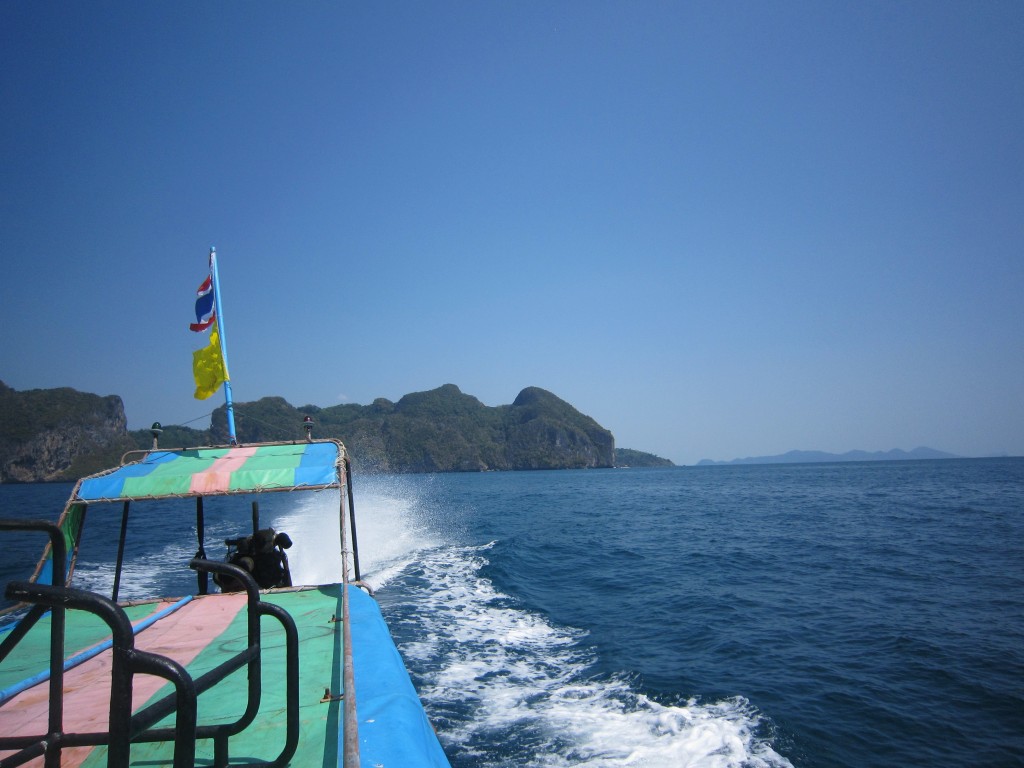 As I have written about my recent trip, I have primarily described the beauty, fascinating history, wonderful culture and people, and family fun. But we also experienced a dark side to our journey. Many things had changed from the time when I lived in SE Asia and the South Pacific from 1989-1992. Most of the changes I saw to the environment in the intervening years were not for the better. While I’m still planning to write an installment describing the fantastic last leg of our trip spent in the islands in the Andaman Sea, Earth Day is here and now. No better time to struggle to put down some of the less picturesque realities of our trip. Here is a quick laundry list:
As I have written about my recent trip, I have primarily described the beauty, fascinating history, wonderful culture and people, and family fun. But we also experienced a dark side to our journey. Many things had changed from the time when I lived in SE Asia and the South Pacific from 1989-1992. Most of the changes I saw to the environment in the intervening years were not for the better. While I’m still planning to write an installment describing the fantastic last leg of our trip spent in the islands in the Andaman Sea, Earth Day is here and now. No better time to struggle to put down some of the less picturesque realities of our trip. Here is a quick laundry list:
In Northern Thailand, the air was so polluted that I didn’t glimpse the actual sky for the two weeks I was there. No discernible clouds puffing against a blue sky. No sky. Just an even, impenetrable grey above. Wildlife? Well, to be fair, we didn’t get outside Chiang Mai much. We saw elephants in a conservation center. Big cats were all but extinct in the dwindling forests. You could pay to cuddle sleepy ones in cages, though, which I’m sure is a powerful experience, but natural? Not so much.
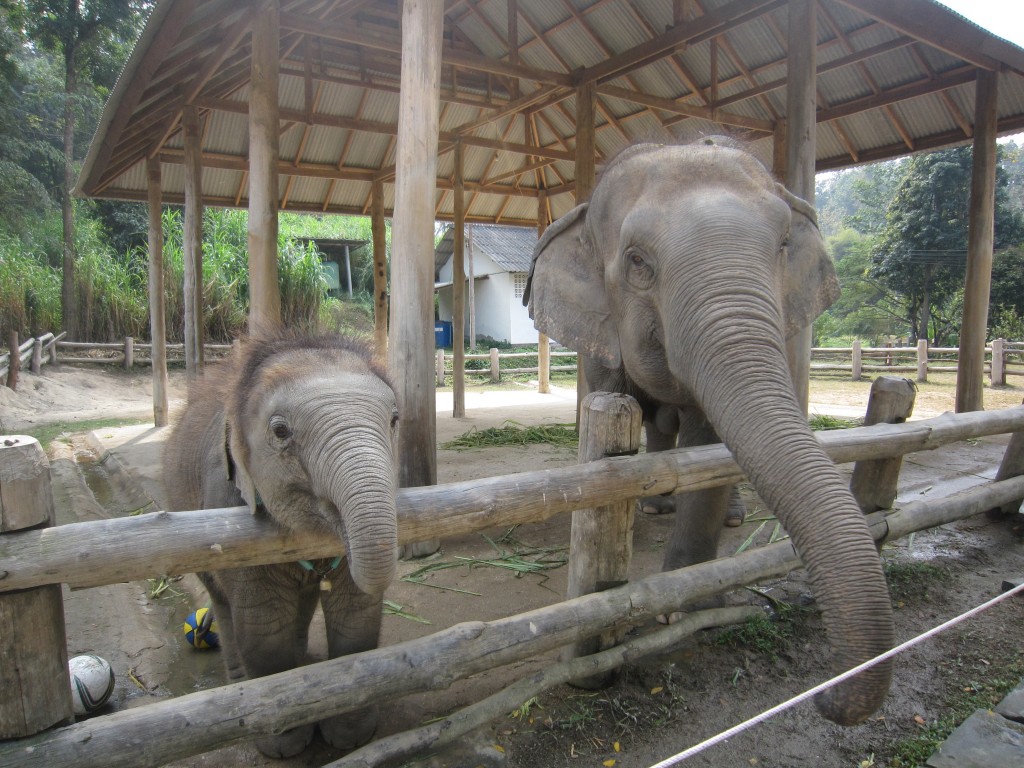 In Siem Reap, Cambodia, rapid growth has led to over-taxed sewage infrastructure, water shortages, habitat destruction and grey skies. The nearby Tonle Sap, SE Asia’s greatest lake, was experiencing historic low water levels, threatening fishing and rice farming.
In Siem Reap, Cambodia, rapid growth has led to over-taxed sewage infrastructure, water shortages, habitat destruction and grey skies. The nearby Tonle Sap, SE Asia’s greatest lake, was experiencing historic low water levels, threatening fishing and rice farming.
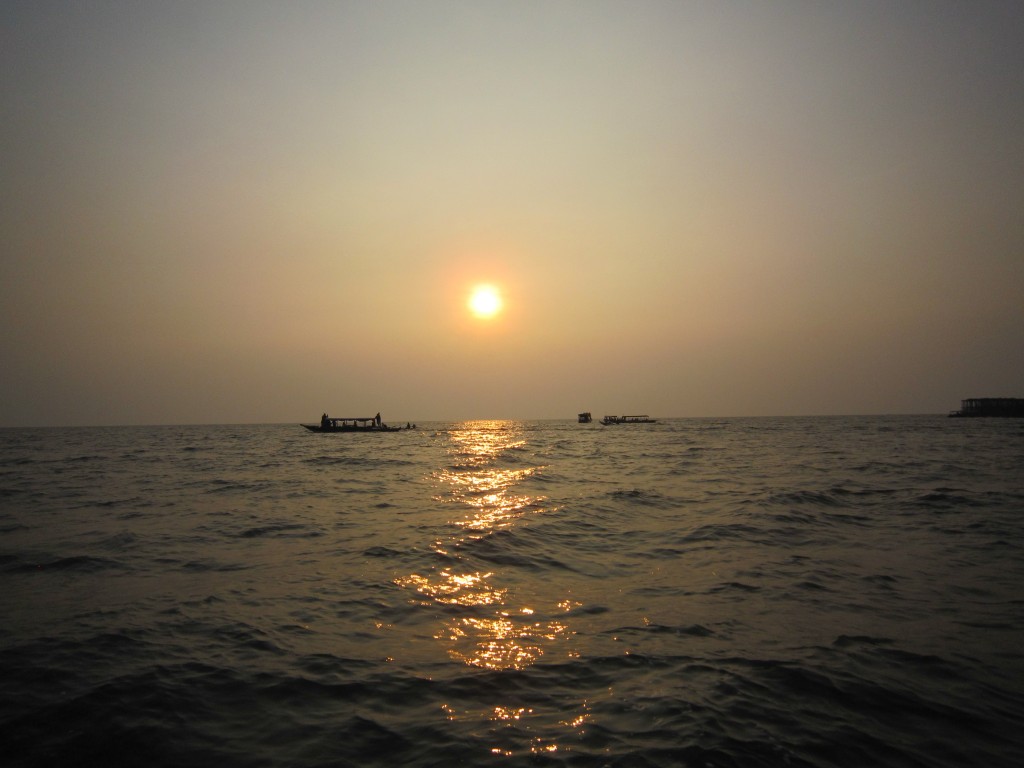 In Borneo, ah, in Malaysian Borneo, a common practice is to rip out old-growth rainforest and replace it with oil palm, from which palm oil, a lucrative export, is created (the same process occurs in Indonesian Borneo). Rainforest destruction displaces wildlife, and indigenous populations, all while polluting rivers. Oil palm plantations stretched for as far as the eye could see from an airplane flying between Miri and Mulu.
In Borneo, ah, in Malaysian Borneo, a common practice is to rip out old-growth rainforest and replace it with oil palm, from which palm oil, a lucrative export, is created (the same process occurs in Indonesian Borneo). Rainforest destruction displaces wildlife, and indigenous populations, all while polluting rivers. Oil palm plantations stretched for as far as the eye could see from an airplane flying between Miri and Mulu.
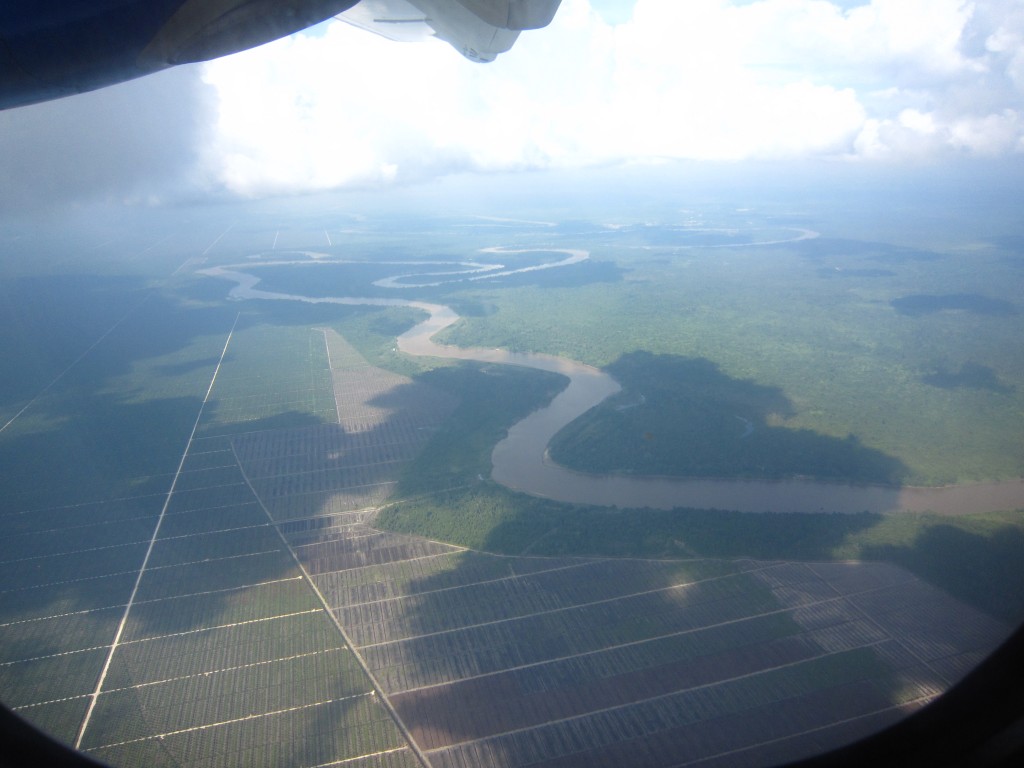 The UNESCO world-heritage site of Gunung Mulu National Park was a island increasingly threatened by a rising sea of oil palm plantations. Sure we saw wildlife in Borneo: orangutans in sanctuaries; proboscis monkeys in Bako National Park, an amazing park that was in itself a sort of sanctuary, also the home of bearded pigs and macaque monkeys looking for human hand-outs. We saw no gibbons in Niah National Park. I think we heard a few in the distance. John said when he last visited about ten years ago, he saw many.
The UNESCO world-heritage site of Gunung Mulu National Park was a island increasingly threatened by a rising sea of oil palm plantations. Sure we saw wildlife in Borneo: orangutans in sanctuaries; proboscis monkeys in Bako National Park, an amazing park that was in itself a sort of sanctuary, also the home of bearded pigs and macaque monkeys looking for human hand-outs. We saw no gibbons in Niah National Park. I think we heard a few in the distance. John said when he last visited about ten years ago, he saw many.
Southern Thailand: more oil palm and rubber plantations, decimated coral reefs, trampled by feet, run over by boats, ripped up by boat anchors and bleached by changing temperatures and stunted by increasing acidity levels.
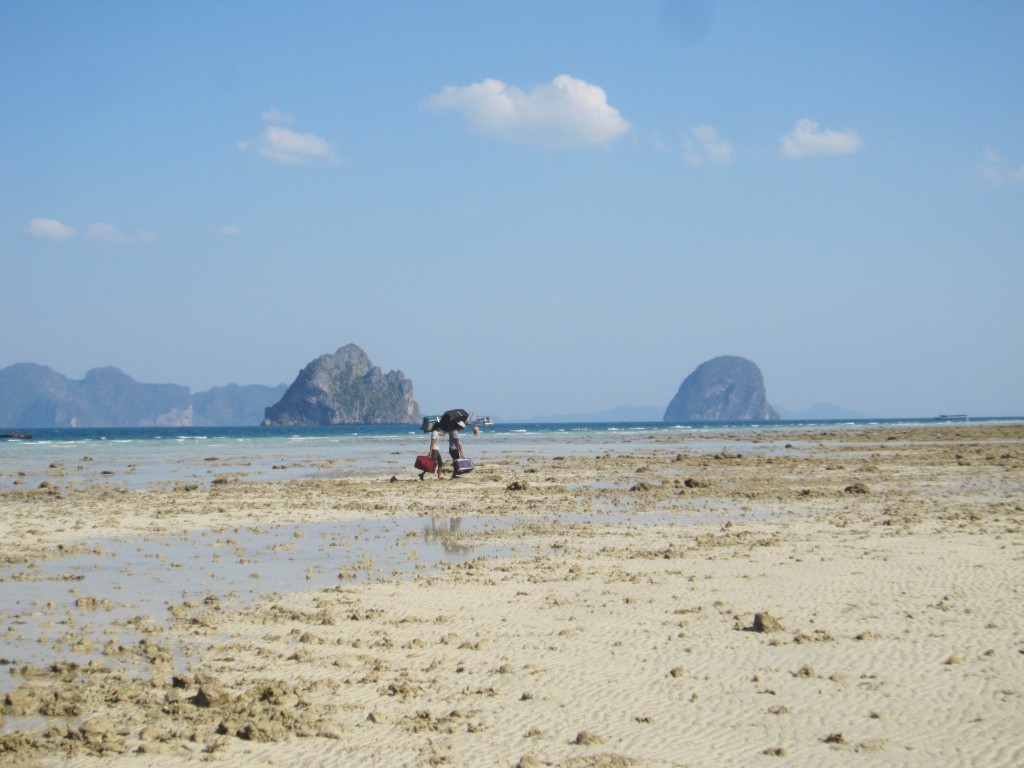 In 2014, it seemed to me that nature was hanging on by a thread, but even still, most of what I saw wasn’t really natural — whether it outwardly looked like it, or not. On our trip we went to many cities. We certainly went nowhere that was in any way untouched. We weren’t mounting an expedition, after all, just traveling as tourists. Maybe there still are a few islands, maybe a few isolated forests, but their isolation is not natural, and their pristine state, only temporary.
In 2014, it seemed to me that nature was hanging on by a thread, but even still, most of what I saw wasn’t really natural — whether it outwardly looked like it, or not. On our trip we went to many cities. We certainly went nowhere that was in any way untouched. We weren’t mounting an expedition, after all, just traveling as tourists. Maybe there still are a few islands, maybe a few isolated forests, but their isolation is not natural, and their pristine state, only temporary.
I didn’t dwell on this for most of the journey because I didn’t want to seem like a negative voice of doom. I wanted to soak in the wonder, which I did. Yet, at times I couldn’t help but feel like I was on some kind of farewell-to-the-planet tour. Everywhere I saw human neediness sucking the life out of all of these environments —doing what one can to survive.
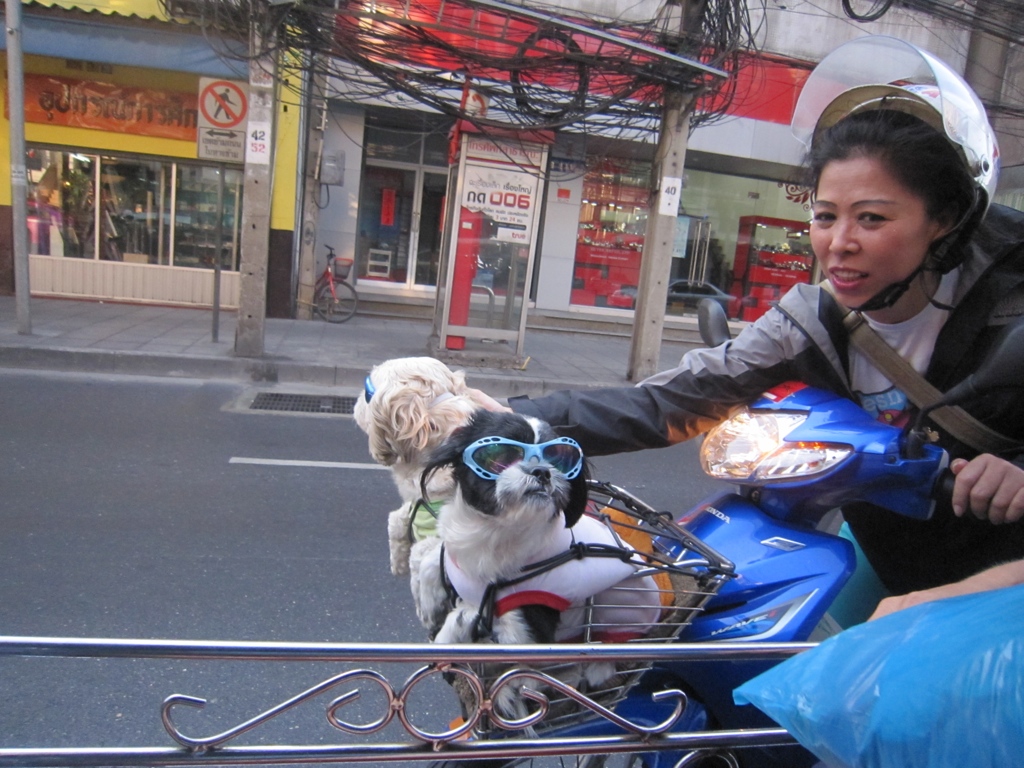 I was just one more mouth to feed. Extraction is happening globally. Here in my comfortable neighborhood, too; It’s just better hidden. Plus because of my closeness to it, I had stopped seeing my environment. Florida’s aquifers are increasingly polluted and water levels are dropping. The Gulf is threatened by oil spills. Coral in the Keys is bleached. Everyone has heard about the plight of the Everglades.
I was just one more mouth to feed. Extraction is happening globally. Here in my comfortable neighborhood, too; It’s just better hidden. Plus because of my closeness to it, I had stopped seeing my environment. Florida’s aquifers are increasingly polluted and water levels are dropping. The Gulf is threatened by oil spills. Coral in the Keys is bleached. Everyone has heard about the plight of the Everglades.
This morning I read an article written in 2012 by Christopher Mims. In it, he aptly summed up my vague feeling perfectly. He posits there is no real nature or environment any more, it’s all an extension of our human organism – a sort of life-support system for a population that has, through technological advancements, grown beyond the ability of the planet to sustain it. He wrote, “We consider “nature” to be whatever we experienced as children, and, limited by our incomplete grasp of history and our short lifespans, are only capable of recognizing short windows of change in what is by now the most profound transformation the Earth has experienced since the great extinctions of yore — that is, the human experiment. Our lack of knowledge should not be construed as any sort of moral failing. It’s simply the consequence of a centuries long experiment in exponential population growth that is only just now coming to its apex. We’re currently witnessing the ascension of an ecosystem that cannot survive without the intercession of technology.” After Mims had this realization, he wrote that couldn’t cover “the environment” any longer.
Reading this felt like confirmation for all that I witnessed. Knowing that earth as a whole is damaged gives one a proper perspective on the problem. While saving every stick insect from extinction is important, if there is no longer a place in the wild for it to live, are we doing it any favors?
I don’t want to know the Earth is in such desperate condition, but it is better than living in denial. From this knowledge I have gained a huge helping of gratitude for what I have been able to experience on this planet and an equal dose of desire to do whatever I can to make the world a place my daughter can live out her life. For starters, I’m going put down the National Geographic and devote my passions and energies to long-term efforts that might help ease my daughter’s generation into the world we have built for them.

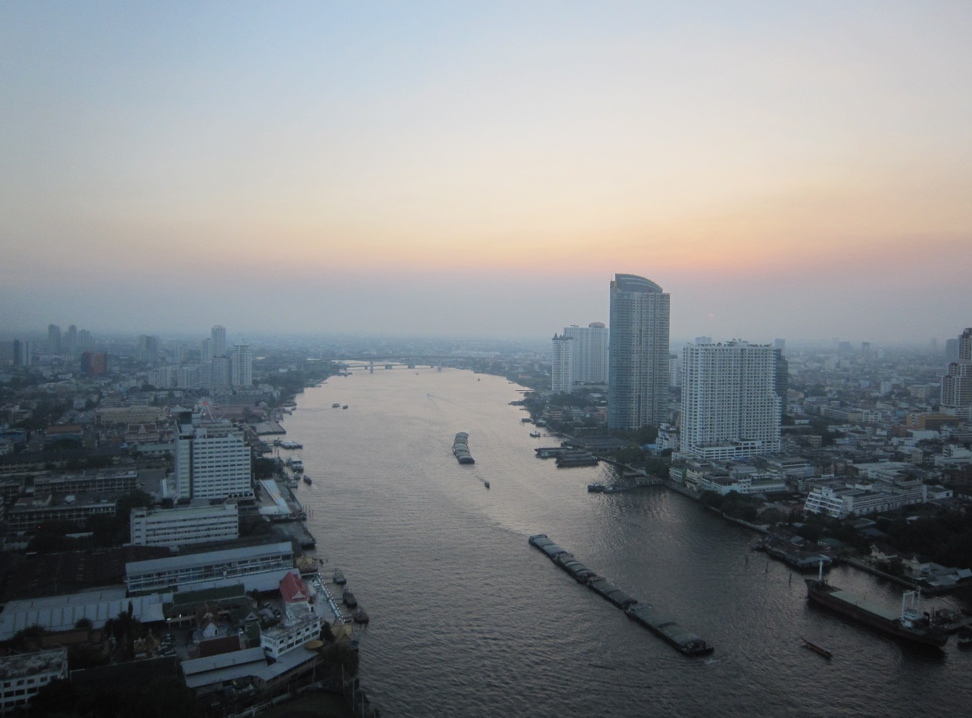
Powerful & thought provoking! Thanks.
Mom
So, while I use this day to celebrate and reaffirm my commitment to continue protecting our mother and only place we call home, I remain vigilant and concerned that 45 years after Earth Day one, our movement still remains whiter than green. Our movement has a great chance to change this moniker; but it must first make the choice to embrace this chance.